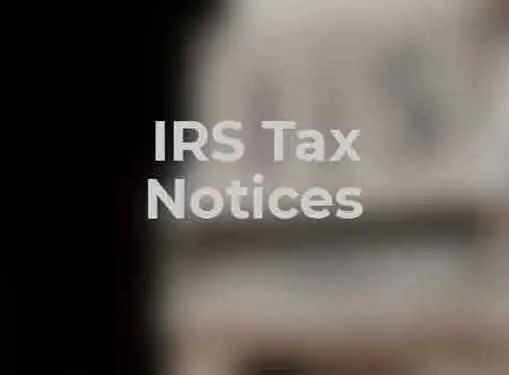Tax Tips for Entrepreneurs
Common IRS Tax Notices and How to Handle Them
Instead of freaking out the next time you receive a notice from the IRS, just follow a few simple tips about how to handle common IRS tax notices.
It's only a matter of time before an IRS tax notice appears in your company's mailbox.

Most businesses invest substantial amounts of time and money in strategies to help them fly under IRS radar and a tax notice means that you've been flagged. But before you push the panic button, take a deep breath and recognize that an IRS tax notice doesn't necessarily have to be a big deal.
The IRS regularly sends out tax notices to small business taxpayers. Sometimes, those notices are to inform you that your company has severely breached the tax code and big trouble is headed your way. But in most cases, a tax notice is simply an indication that the business has committed a small oversight that can be easily corrected without an audit, fine, or other penalty.
Now that you're prepared to approach IRS tax notices more rationally, it's time to take a look at some of the most common IRS notices and what they mean for your small business.
- Information & payment requests. If your return is missing information or if you failed to provide adequate payment, you will receive a notice from the IRS. The notice should include instructions about how to remedy the situation as well as a deadline for your response.
- Audit notice. IRS audits aren't ambushes. If your return has been flagged for an audit, you will receive official notice from the IRS, including a request for information that you will need to provide and a specific time/place at which the audit will occur.
- Math errors. If the IRS thinks you have made a math error that has resulted in an underpayment of taxes, you will receive a CP 102 notice. The notice will tell you how to respond, but it's likely that you'll be assessed a late payment penalty and interest.
- Bounced checks. A CP 165 is used to inform the taxpayer that the check for the payment of their taxes was returned by the bank for insufficient funds. You will be asked to pay the outstanding balance of your tax bill and a 2% bad check penalty. Other fees (e.g. late payment and interest) may also apply.
- Discrepancies. CP 2501 notices indicate a discrepancy between IRS records and the income, credits, or deductions you claimed on your return. The variance could be a clerical error or it could translate into a more serious tax problem.
It's never prudent to ignore an IRS notice. Contact the IRS representative listed on the notice as soon as possible to acknowledge your awareness of the problem and to advise them about what you plan to do to correct the situation.
Share this article
Additional Resources for Entrepreneurs


Conversation Board
We greatly appreciate any advice you can provide on this topic. Please contribute your insights on this topic so others can benefit.